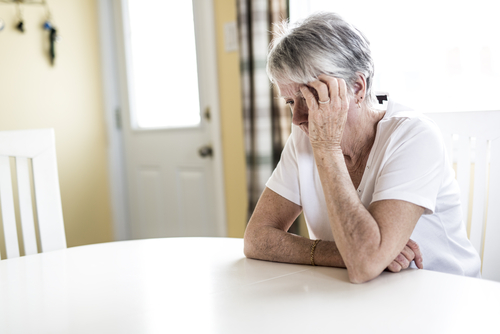Women with Parkinson’s Who are Homebound Face Greater Barriers to Access Support, Study Finds

Women with advanced Parkinson’s disease who are homebound are more likely to live alone and may face greater barriers to accessing support.
That finding comes from the study, “Sex-related differences in homebound advanced Parkinson’s disease patients,” which was published in Clinical Interventions in Aging.
Parkinson’s motor and non-motor symptoms negatively affect patients’ quality of life. Caregivers play an important role in keeping Parkinson’s patients engaged in daily activities, which can improve their quality of life.
“The combination of advanced PD [Parkinson’s disease], older age, and its associated accumulation of comorbidities are negatively reinforcing, rendering many people homebound. Once homebound and disconnected from routine care, this population is at further risk of deterioration and adverse events,” the researchers wrote.
Parkinson’s duration appears to be similar between the sexes. However, and in comparison to men, studies indicate that women tend to be older, have greater disease severity, other diseases aside from Parkinson’s (comorbidities), and are less likely to be monitored by a neurologist or receive surgical interventions like deep brain stimulation.
Join the Parkinson’s forums: an online community for people with Parkinson’s Disease and their caregivers.
A recent study also has shown that women are at greater risk of having poor access to caregivers.
To further explore the associations between sex, homebound status and access to care, researchers studied the characteristics of men and women who were unable to leave their home and who were enrolled in a home visitation program for people with advanced Parkinson’s and related disorders. The study was a collaboration among nine institutions, including universities and medical centers.
Patients were seen between February 2014 and July 2016. Researchers analyzed the subjects’ data, which was either collected through in-person interviews or medical chart review.
Of the 85 enrolled patients, 52% (44 people) were women. At the first program-related home visit, individuals had an average age of 79.6 years and no differences were found between sexes.
Among the women, 32 had Parkinson’s disease, eight had dementia with Lewy bodies, one had Parkinson’s disease dementia, and the remaining nine had different types of parkinsonism-like disorders.
Overall, in the entire group of 85 patients, Parkinson’s was the most common diagnosis (79%). A diagnosis of Parkinson’s dementia was more frequent in men (17.1%) than in women (2.3%).
Men were found to have greater caregiving assistance, compared to women. “Comparing caregiver types, 70.7% of men identified a spouse, partner, or significant other serving as a caregiver compared to only 27.3% of women,” the researchers noted.
Women were more frequently single or widowed, which could be explained by the fact that women have a longer life expectancy than men.
About 18.1% of women lived alone and had no caregiver, compared to 2.4% in the male subsample.
“This study highlights the relative lack of caregivers among homebound women with advanced PD [Parkinson’s disease] and emphasizes the vulnerability of this group of patients to interruptions in continuity of care. With additional understanding of barriers to care, clinicians can further individualize treatment strategies, counseling, and care planning based on these sex-related differences,” the researchers concluded.






